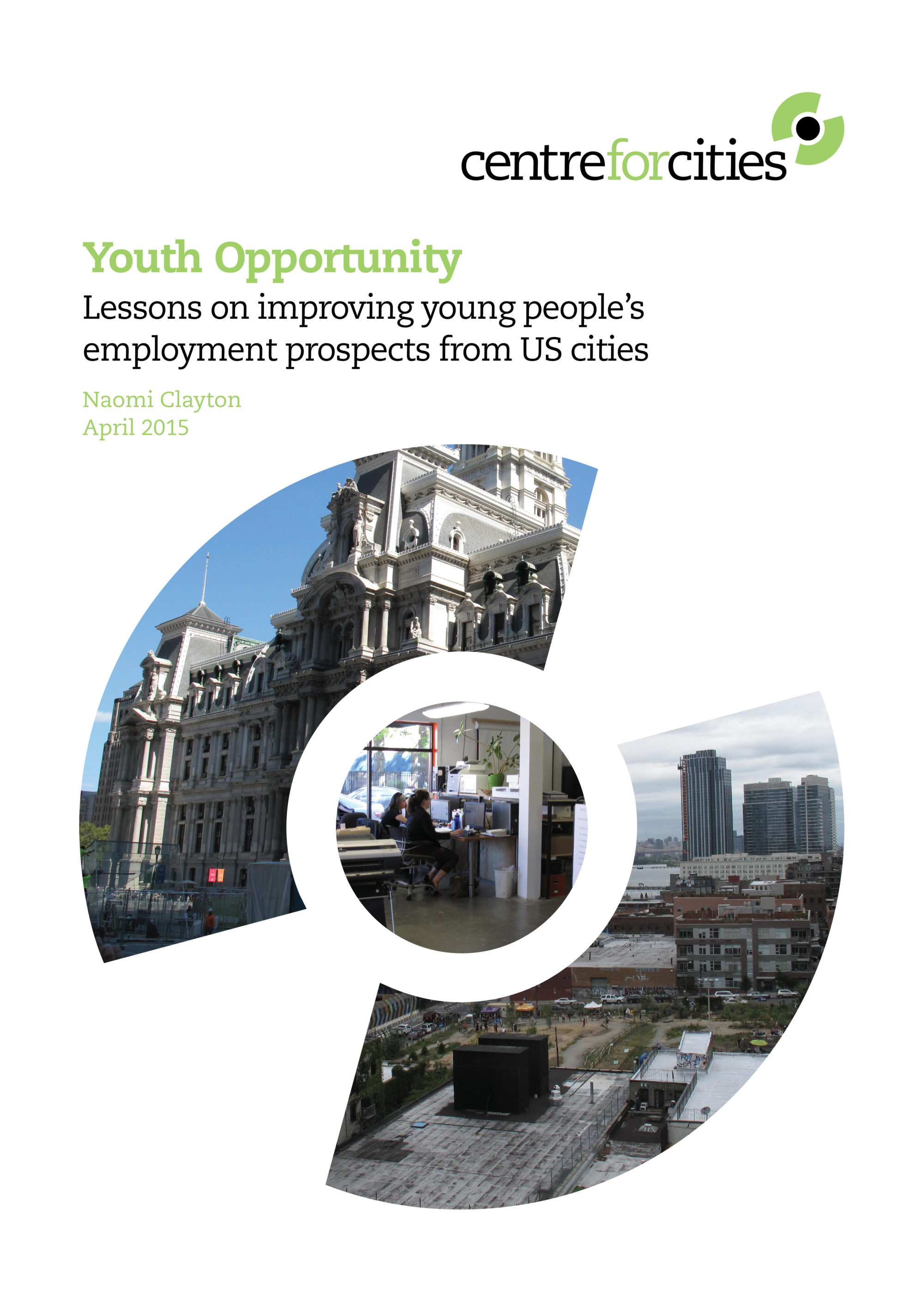04Recommendations
This concluding section focuses on what the findings from the research mean for policymakers, practitioners and the business community in the UK.
The experience of partners in the US and the UK shows how critical collaboration is to the economic prospects of future generations. The examples included as part of this study show that collaboration can achieve better outcomes, allowing partners to: address the complex issues facing young people; meet employer demand; increase the accessibility of services; and create new pathways into employment in a more effective and efficient way while improving their own financial stability. It is a critical part of tailoring support to the needs of local communities and businesses, filling gaps in national provision, piloting new ways of working and building the evidence base on what works.
The case studies included in this report raise significant questions about the future of youth skills and employment policy in the UK. Evidence from the US suggests that the business community in the UK could do more to support young people into employment and ensure they have a recruitment pipeline. Collaborative working in this field has taken a variety of forms in US cities in part due to the role of the state relative to other actors and comparatively high levels of city autonomy. Strong local leadership is also an important factor, and funding structures can both help and inhibit collaboration. There is clearly a role for both cities and national government in the UK to play in creating the conditions for cross-sector leaders to collaborate.
Several recommendations for UK cities and local partners emerge from the study. Combined authorities and Local Enterprise Partnership (LEPs) should:
- Ensure strong local leadership and structures are in place to bring cross-sector leaders together with shared goals to improve young people’s employment prospects, and maintain their active engagement;
- Use evidence and employer engagement to establish a narrow set of clearly defined and shared goals centred around youth employment;
Leverage from a more diverse set of funding streams, including private sector investment; - Designate an intermediary body (either the Combined Authority or the local Chamber, for example) to foster public-private relationships on a city-wide scale, engaging with employers with a clear offer of how they can get involved;
- Ensure that supporting infrastructure – data, performance management systems and a coordinating body – are in place to support the collaboration;
- Share data and monitor programme performance in an open and transparent way and consider pooling resources with other cities to fund the robust evaluation of similar initiatives
Businesses, local Chambers of Commerce and other business representative bodies should:
- Get involved with, and where appropriate lead, the design and delivery of city-led youth employment initiatives that are delivered during the next Parliament;
- Work with Combined Authorities and LEPs to develop a city-wide offer for work experience and work-based learning in collaboration with schools and other learning providers.
Funders and policymakers need to create tools and incentives to enable and support collaboration. National governments in the UK should:
- Devolve commissioning of the post-2016 Work Programme and any subsequent youth employment programmes to cities;
- Implement Community Budgets to allow cities to join services up around young people;
- Commit long term to establishing partnerships to improve outcomes for young people;
- Support evaluation of the most promising city initiatives to assess whether they should and can be replicated elsewhere;
- Improve cities’ access to quality labour market intelligence by investing in research and real-time databases, and by sharing more administrative data (DWP and HMRC specifically) with local partners;
- Explore ways to better align central government department programmes and delivery bodies with each other and with local partners.
Despite some progress in this area, it is unrealistic to expect any significant improvement in outcomes among young people in the UK without stakeholders taking a more joined up approach – and the business community becoming more involved in designing, delivering and funding initiatives. Reductions in government spending creates additional urgency for cross-sector leaders to come together to deliver solutions.
